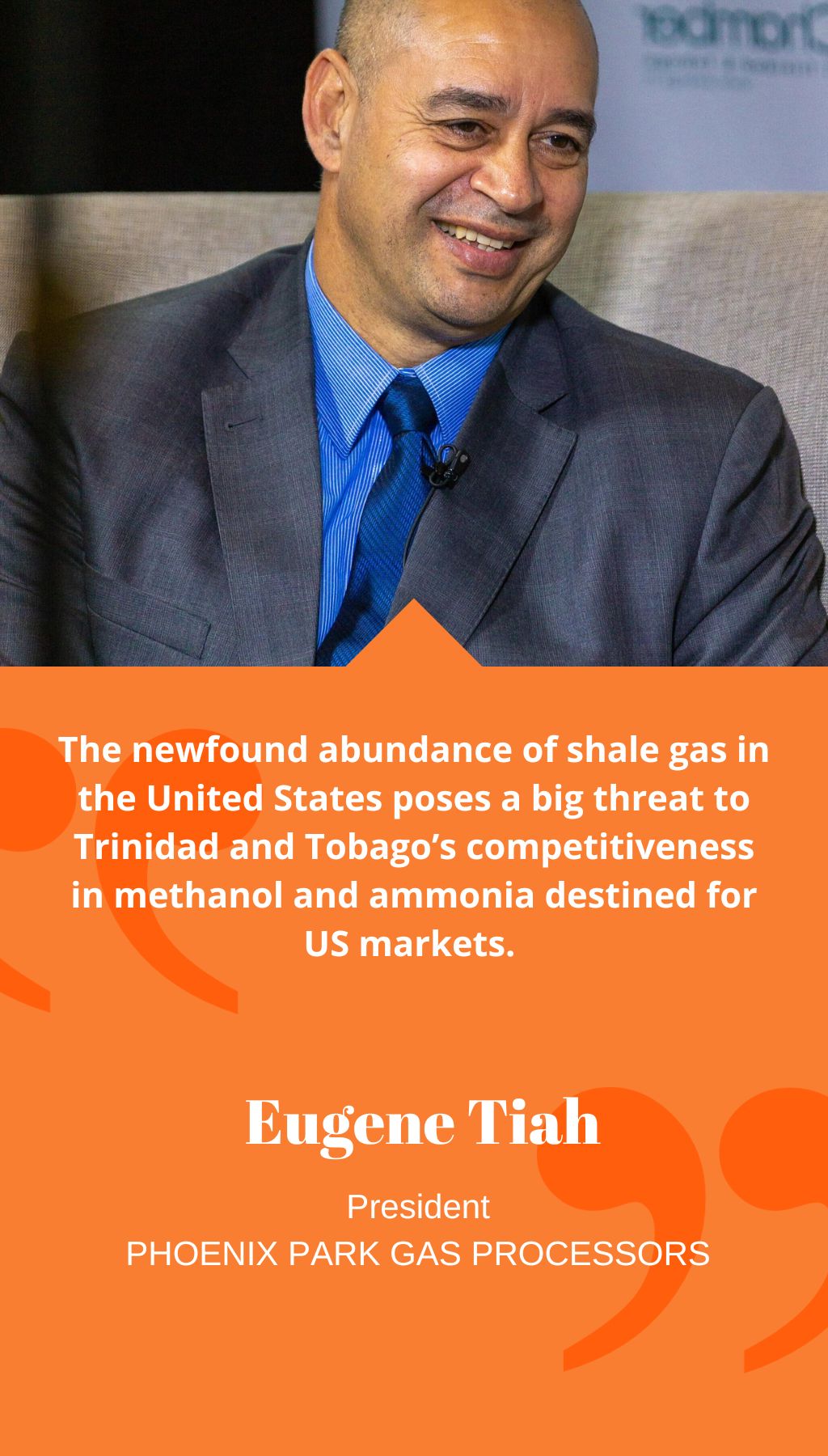
- Trinidad & Tobago | 9 May 2013

Can you provide an overview of your three natural gas processing facilities at Phoenix Park?
Phoenix Park currently has three gas processing modules with a combined processing capacity of just under 2 billion cubic feet of gas per day, making it the biggest in the Americas. One of the modules has a capacity of 750 while the other two have capacities of 600. Additionally, there are three fractionators that separate the natural gas liquids into propane, butane, and natural gasoline. These liquids are stored separately in tanks and delivered to regional markets for propane and butane and internationally for natural gasoline.
How has the overall downturn in the upstream sector affected Phoenix Park’s operations, and what are some of the other current market challenges that you are experiencing?
The unpredictability of raw feedstock supply has led to downstream curtailments, affecting production capacity and the company’s ability to meet obligations to contracted customers. While the supply model from the National Gas Company has historically worked well for the downstream industry, the current reduction in supply and maturity of the gas sector is now a subject for national discussion. The company aims to increase efficiency and avoid monopoly rates.
How does the abundance of shale gas in the United States affect Trinidad and Tobago’s competitiveness in methanol and ammonia production?
The newfound abundance of shale gas in the United States poses a big threat to Trinidad and Tobago’s competitiveness in methanol and ammonia destined for US markets. If the US becomes a substantial producer of these products, it will result in a reduction of the US import market, and products will have to be shipped further afield, increasing freight costs and resulting in a lower net value for Trinidadian producers. There are also threats from the developing African gas resource market to other products that Trinidad and Tobago produces.
Is looking at markets abroad a way of protecting Phoenix Park Gas Processors from the volatilities of the home market?
Diversifying into other markets is a way to create value for the company’s production capabilities, not necessarily to protect against volatilities in the home market. The company is focused on opportunities in Latin America and Africa, as developed countries with strong players are difficult to compete with and launch into.
What are some of the opportunities that Phoenix Park is pursuing and where can we expect to see the company’s operations in the near future?














